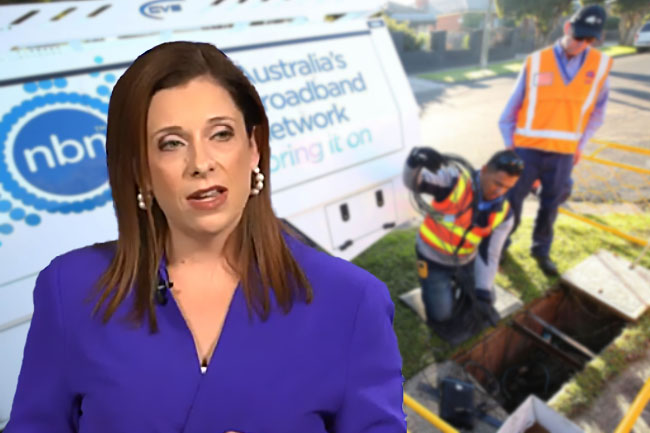The Government's NBN plan is undeveloped and lacklustre, writes Paul Budde.
WHEN THE Coalition Government scrapped the fibre to the home (FTTH) project, the then-Minister for Communication, Malcolm Turnbull, proclaimed that we would build his newly concocted multi-technology mix version of the NBN for $25 million and that it would be ready by 2016.
Since then, the roll-out target was changed several times to finally fit the date that we are now reaching.
We must now accept what we have. To their credit, the NBN CO has mostly managed the COVID-19 crisis well.
At the same, there are excellent lessons that we have learned from the crisis. Working from home has become far more acceptable. After 20 years, "teleworking" has finally taken off and is here to stay. While students belong in schools, teachers have learned how to use e-education and with this experience now onboard online will remain an important tool in the overall education programs.
Telehealth will revolutionise health care services. Again, the early activities go back two decades but the medical profession was reluctant to take it on board. The developments in telehealth will be nothing less than revolutionary over the next decade as we now do have the profession onboard.
What this means for the NBN is that businesses, education, and health care systems will now use the experiences they had with online services and develop this further. This will mean more innovative services, significant, new applications with video-based and image-based content.
The NBN will need to be able to provide the capacity for these upcoming changes at affordable prices.
Sam Varghese in ITwire wrote:
Barring a major catastrophe, the Coalition Government will be able to announce within a fortnight or so that it has completed the rollout of the national broadband network met its target.
One can only hope that, at the same time, there will be an announcement about how the network will be upgraded. Any announcement will be akin to the declaration by George W. Bush in May 2003 that the invasion of Iraq he had launched two months earlier was a success; a "Mission Accomplished" banner flew above him that day.
For over a year, I have been asking the Government: What is your plan? What is your policy for the next stage of the NBN? But the only thing Minister Paul Fletcher can do is criticise the FTTH policy of the Labor Government.
But they've been in power for close to a decade, so one could expect that they would now have taken responsibility for the future of the plan.
Thankfully, we did get some further details in an interview between Grahame Lynch, Communications Day CEO and Minister Fletcher. The Minister basically indicated that he was not going to give NBN Co directive son the next step of the NBN.
In the past, the Government has issued so-called "statements of expectations" to the company. As the Government is the owner of the NBN, it is up to them to direct NBN Co to provide them with such a statement if it, for example, wanted to initiate the next steps. But there doesn’t seem to be Government policy for the next stage of the NBN.
A full upgrade to FTH was estimated by Professor Mark Gregory to cost around $16 billion. NBN Co recently was able to borrow $6.1 billion from the banks. However, Stephen Rue, the company’s CEO indicated that he was not planning to use that for the next stage. Instead, he indicated that he would use that money to increase the ROI for the company which of course would greatly assist in repaying the debt it owes the Government.
Telstra is of course still hovering on the sidelines as it is keen to become more involved in the future of the NBN and its CEO has also asked the Government for a plan. The positive that came out of this for the company is the Minister seems to have changed his mind from first not letting Telstra become involved as he would like to see more competition.
He has backflipped and left the door open for Telstra to become involved.
We need a "statement of expectation" from the Government, as this would allow all parties to become involved in this national project. Through submissions, issues such as the investments needed, competition safeguards, regulatory and legal changes, affordability guarantees and so on can then be discussed.
This process alone will easily take two years before anything further will happen, so such a statement or at least a major review is long overdue.
Without any plan for the next stage of the project, we are all still kept in the dark and Australia will remain hovering at the bottom of the international ladder for fixed-line broadband.
Paul Budde is an Independent Australia columnist and managing director of Paul Budde Consulting, an independent telecommunications research and consultancy organisation. You can follow Paul on Twitter @PaulBudde.
 This work is licensed under a Creative Commons Attribution-NonCommercial-NoDerivs 3.0 Australia License
This work is licensed under a Creative Commons Attribution-NonCommercial-NoDerivs 3.0 Australia License
Support independent journalism Subscribe to IA.












